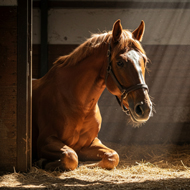Public asked to track yellow-legged hornet sightings
Yellow-legged hornets feed on pollinating insects, such as the honeybee.
The UK Centre for Ecology and Hydrology (UKCEH) has called for members of the public to record sightings of yellow-legged hornets on their app, following a recent increase in numbers.
Last year there were 72 confirmed sightings of yellow-legged hornets, which are also known as Asian hornets. So far this year there have been 25 confirmed sightings, with this number likely to increase from September.
Yellow-legged hornets are an invasive, non-native species which pose a threat to British biodiversity. They feed on pollinating insects, such as the honeybee, which means they endanger food security and ecosystems.
The hornet species originated in Asia, before unintentionally being introduced into France in a pottery consignment. Since then, the yellow-legged hornet has rapidly colonised countries across Europe.
Now that yellow-legged hornets are established in France, the ‘propagule pressure’ is high. This means there is a high risk of more hornets arriving in the UK.
Following the first sighting in the UK, UKCEH and the Great Britain Non-native Species Secretariat collaborated to produce the Asian Hornet Watch app in 2017.
The app features identification guides and allows users to report suspect insects. These reports help the Animal and Plant Health Agency’s (APHA’s) National Bee Unit to respond to sightings.
Since 2016, there have now been 126 confirmed yellow-legged hornet sightings in Great Britain. This includes 89 hornet nests which have been found and destroyed – 72 of which were identified in 2023.
So far this year there have been 10,000 potential hornet sightings recorded on the Asian Hornet Watch app, with 25 of these being confirmed as yellow-legged hornets.
However, sightings are expected to peak from September onwards, when hornet colonies generally increase in number. Members of the public are asked to record any potential sightings using the app.
The spread is largely contained in South East England, with sightings confirmed in Kent, Sussex, Hampshire and London. There have also been isolated sightings in South West England.
Helen Roy, ecologist at UK CEH, said: “When we receive photographs or specimens through the post, we always take time to double check whether it actually is a yellow-legged hornet.
“One of the easiest ways to identify them is by looking at their legs. Yellow-legged hornets have yellow and brown on their legs, whereas European hornets’ legs are only brown.”
Kate Wilson, head of APHA’s National Bee Unit, said: “The Asian Hornet Watch app is an important tool to help the National Bee Unit respond to sightings as early as possible.
“Please continue to be vigilant for any Asian hornets and if you think you’ve spotted one, report your sighting through the Asian hornet app.”
Image © Shutterstock



 Zoetis UK has called on horse owners to complete a short online survey about their horse's behaviours.
Zoetis UK has called on horse owners to complete a short online survey about their horse's behaviours.